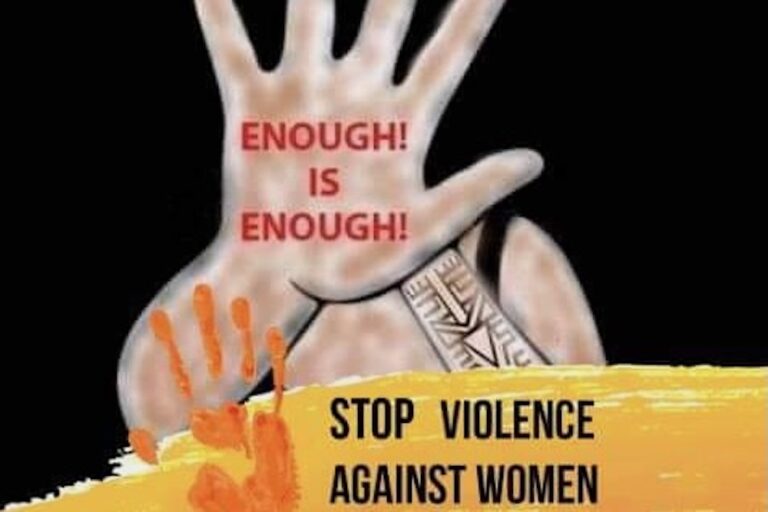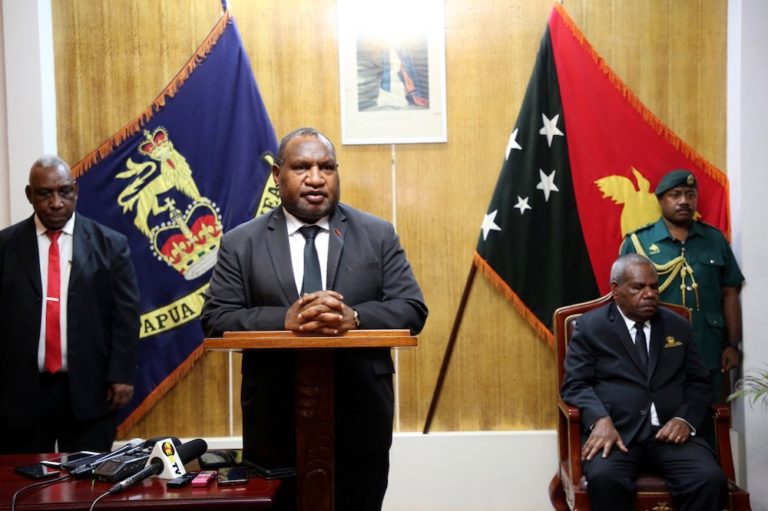(PINA/IFEX) – The use of armed police on 19 August 1998 to keep the public and journalists from attending the court case of a woman allegedly videotaped while having sex with a prominent government politician is causing anger in Papua New Guinea. National Capital District/Central police commander John Wakon said the police prosecutor used his […]
(PINA/IFEX) – The use of armed police on 19 August 1998 to keep the public
and journalists from attending the court case of a woman allegedly
videotaped while having sex with a prominent government politician is
causing anger in Papua New Guinea.
National Capital District/Central police commander John Wakon said the
police prosecutor used his discretion to bar the public and media from
hearing the case. The woman appeared briefly before a magistrate and did not
enter a plea to a charge of production of objectionable publication under
the Classification of Publication Censorship Act. A large crowd had gathered
outside the court, Papua New Guinea journalists reported.
Wakon has ordered the police prosecutor to allow the media in for another
hearing scheduled for 21 August 1998. Chief Magistrate Micah Pitpit said he
would call for answers on the blockading of a city courthouse.
The country’s biggest daily newspaper, the “Papua New Guinea Post-Courier”,
said in an editorial on 20 August 1998: “The decision yesterday by someone
to bar the public and the media from attending court proceedings for a woman
charged over a videotape in which she is allegedly having sex with a
prominent politician, was an act against the Constitution.
“No one other than the courts has the power to bar the media or members of
the public from attending any court hearing. In many high profile cases such
as this in the past, members of the public have been barred due to lack of
space or for security considerations, but members of the media attend such
proceedings as they are the publicâs ears and eyes in these public hearings.
The Constitution recognises that and makes allowances for it.
“The court hearing yesterday, for the woman at the centre of the sex tape
scandal, has generated a lot of public interest because it allegedly
involves a senior politician in the current government coalition. By denying
media entry to the hearings yesterday, the person who took that decision
unilaterally denied the public their right to know what
transpired in a public court hearing.
“The law allows for proceedings to be conducted out of the public eye. This
happens only if parties in the proceedings apply to the court, when it is in
session, for an in-camera hearing and they must justify why they want a
closed hearing.
“If the court, and only the court, decides there should be a closed hearing
after weighing the arguments for and against then all but those involved in
the case are kept from the room.
“In yesterdayâs case there was no such hearing or application to bar the
media and the public. Police chiefs yesterday were baffled by the ban and so
was the Chief Magistrateâs Office. It seems it was the decision of one
person who decided to be judge, jury and executioner. He should be told in
no uncertain terms about the laws that apply to courts.”


